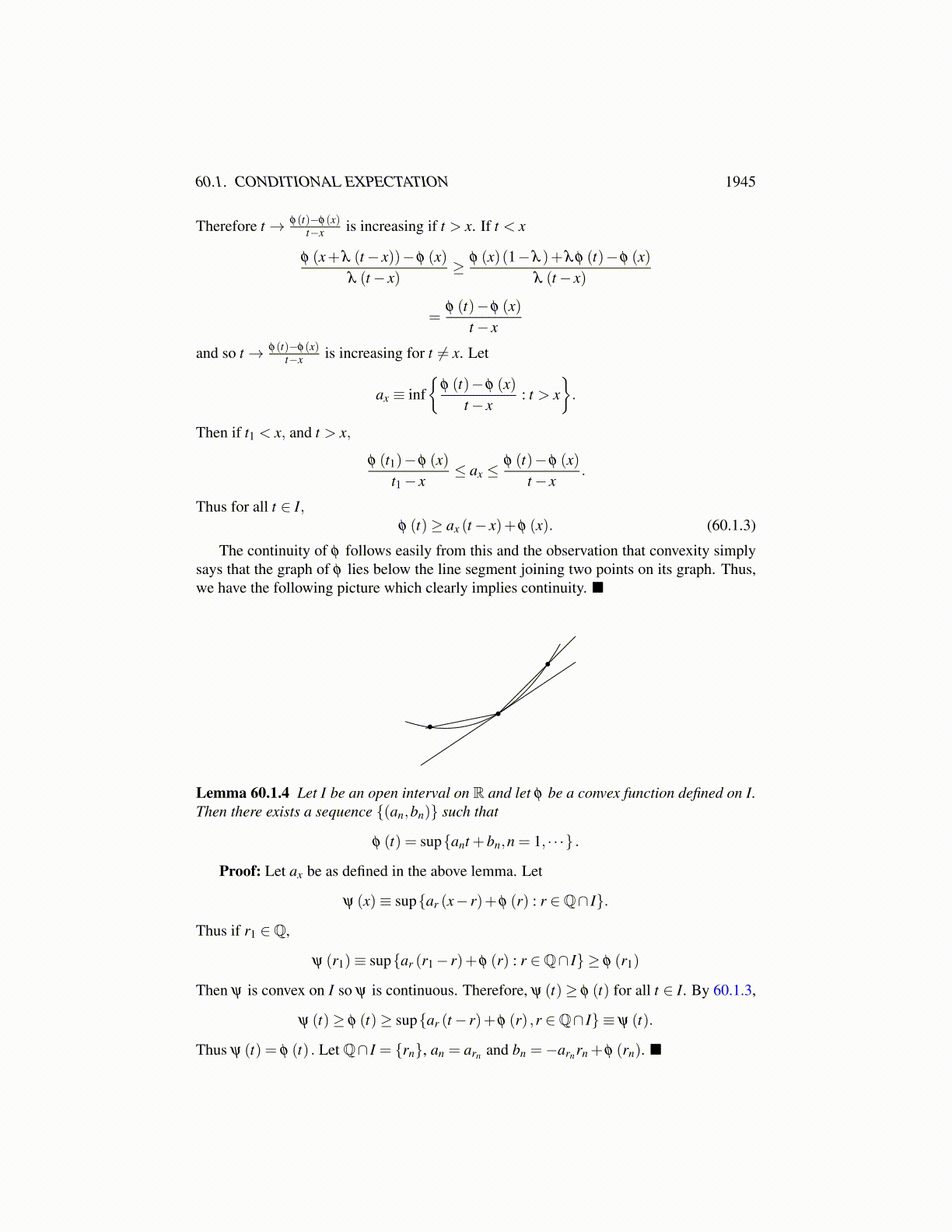
Chapter 60
Conditional, Martingales60.1 Conditional Expectation
From Observation 59.11.5 on Page 1895, it was shown that the conditional expectationof a random variable X given some others really is just what the words suggest. Givenω ∈ Ω, it results in a value for the “other” random variables and then you essentially takethe expectation of X given this information which yields the value of the conditional ex-pectation of X given the other random variables. It was also shown in Lemma 59.11.4 thatthis gives the same result as finding a σ (X1, · · · ,Xn) measurable function Z such that forall F ∈ σ (X1, · · · ,Xn) , ∫
FXdP =
∫F
ZdP
This was done for a particular type of σ algebra but there is no need to be this specialized.The following is the general version of conditional expectation given a σ algebra. It makesperfect sense to ask for the conditional expectation given a σ algebra and this is what willbe done from now on.
Definition 60.1.1 Let (Ω,M ,P) be a probability space and let S ⊆ F be two σ alge-bras contained in M . Let f be F measurable and in L1 (Ω). Then E ( f |S ) , called theconditional expectation of f with respect to S is defined as follows:
E ( f |S ) is S measurable
For all E ∈S , ∫E
E ( f |S )dP =∫
Ef dP
Lemma 60.1.2 The above is well defined. Also, if S ⊆F then
E (X |S ) = E (E (X |F ) |S ) . (60.1.1)
If Z is bounded and measurable in S then
ZE (X |S ) = E (ZX |S ) . (60.1.2)
Proof: Let a finite measure on S , µ be given by
µ (E)≡∫
Ef dP.
Then µ ≪ P and so by the Radon Nikodym theorem, there exists a unique S measurablefunction, E ( f |S ) such that ∫
Ef dP≡ µ (E) =
∫E
E ( f |S )dP
for all E ∈S .
1945